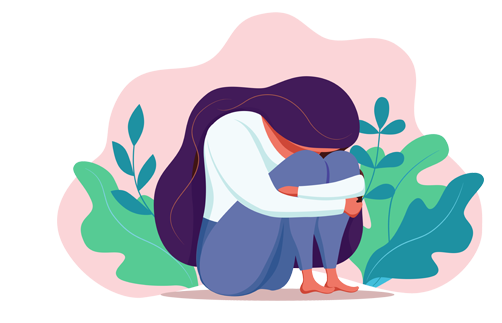Has your life just taken a sudden and unexpected twist? And, if any of the below mentioned conditions are causing emotional pain and mental pressure on your mind then it may be a sign of Adjustment Disorder.
- Change in relationship status
- Moving away from college
- Relocating to a new place
- Switch job
- Starting a new business or anything else
- Death of any family member/relative/friend
- Divorce
- Bed-ridden due to any kind of disability/illness
- Moving to a new place
- Unexpected events
- Financial crisis
Most of the people usually face one or more such issues at some point of life. Therefore, it is important to remain aware towards this issue with required knowledge and information.
Symptoms of Adjustment Disorders
Signs and symptoms of this mental health difficulty vary from person to person. However, it is certain that it largely affects how you feel and think about yourself and the world. Changes in actions and behaviors are also found.
Some commons symptoms of this problem are:
- Continuous sadness
- Hopelessness
- No interest to enjoy the celebrations
- Continuous crying
- Worrying every time
- Trouble sleeping
- Lack of appetite
- Unable to concentrate
- Don’t like following routine activities
- Do not participate in gatherings
- Avoiding important things
- Suicidal thoughts
Symptoms in people occur in different patterns so consulting a mental health care expert always proves a viable option to appropriately evaluate the situation. For better classification, experts have categorized Adjustment Disorder in six different subtypes including:
1. With mixed disturbance of conduct & emotions – Both emotional symptoms (anxiety/depression) and a disturbance of conduct are primary.
2. Unspecified – For maladaptive reactions, which are yet to classify, as one of the specific subtypes of AD.
3. With Anxiety – separation, nervousness, jitteriness, worrying are main
4. With depressed mood – low mood or feelings of hopelessness are main
5. With mixed anxiety and depressed mood – a mix of anxiety & depression common
6. With disturbance of conduct – behavioral changes
Diagnosis for Adjustment Disorders
Diagnosis of Adjustment Disorders majorly depends upon the fact what type of symptoms you show and how they impact your capabilities to function towards a particular situation. After having a candid discussion, your mental health care specialist will be in a better position to diagnose the problem.
Adjustment Disorder Treatment
It is a curable disorder, so there is no need to feel uncomfortable. Talk therapy and medication works perfectly. Depending upon condition, your doctor may also consider a combination of the two.
1. Talk Therapy: It works perfectly to successfully cope with Adjustment Disorders. During the talk, your mental care specialist provides emotional support so that you can easily overcome the tough phase of life. Specialists also teach stress management strategies and other healthy habits.
2. Family Therapy: It is also an effective therapy to consider as you learn the best way to support an individual.
3. Medication: Your doctor might prescribe certain types of medicines to reduce the effects of depression or anxiety that accompanies Adjustment Disorders. Antidepressants or anti-anxiety medication may be required for a limited period of time but consult your physician before adjusting any dosages or discontinuing with medicines.
If you or a loved one is struggling with an adjustment disorder and you don’t know where to turn, connect with us today. The most predictable facet of life is its unpredictability. When we expect things to zig, they zag. Mental health is a full time investment and you should be committed to the journey.



